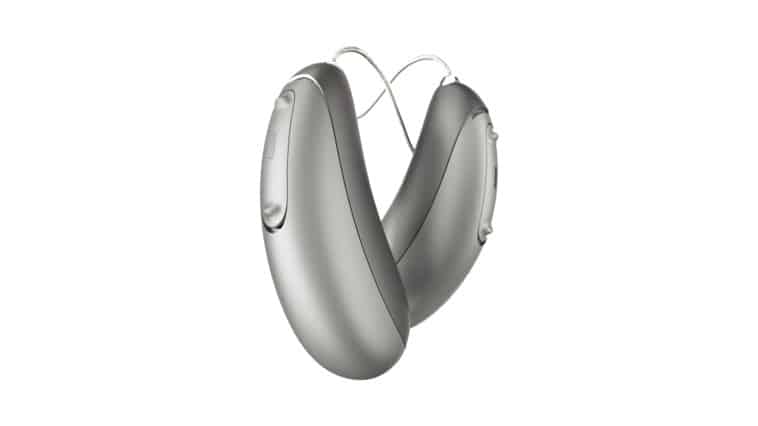0% financing available. Up to 3-year loss and damage guarantee.

Meds that Could Cause Hearing Loss
- Navigating the Conversation: The Significance of Thoughtful Disclosure in Hearing Loss - December 10, 2023
- The Sound of Dreams: Understanding How Hearing Loss Impacts Dreaming - November 7, 2023
- Traveling Effectively with Hearing Aids - October 16, 2023
Be Aware: Meds That Could Cause Hearing Loss
An increased risk of hearing loss as a side effect of certain medications is gaining attention, as the public becomes aware that many commonly used drugs could cause permanent damage to their ears. It is estimated that 500,000 Americans suffer hearing loss as a result of ear-damaging medications each year. Pharmacists can play a role in counseling patients on which drugs are the most potentially ototoxic (harmful to the ears), and how a few lifestyle changes can help to reduce the risk of long-term hearing damage. But patients should also be vigilant in asking about side effects, and weighing the costs and benefits when starting new medications.
Ototoxic medications
The American-Speech-Language-Hearing Association (ASHA) estimates that there are currently over 200 ototoxic medications on the market, with the resulting hearing loss ranging from temporary and mild–such as a short-term ringing in the ears–to severe and permanent damage.
Often these medications are used among the elderly on a long-term basis, and many are prescribed for serious conditions such as cancer or heart disease. However, certain over-the-counter medications commonly used to treat mild complaints have to potential to be damaging if used frequently enough.
Ototoxic medicines harm the ears by causing damage to the sensory cells of the cochlea in the inner ear. Some can result in a temporary hearing loss which will disappear once the medication is discontinued, while others can result in more permanent hearing damage.
Here are a few commonly used over-the-counter and prescription drugs that have ototoxic qualities patients should be aware of.
Meds that could cause hearing damage:
- Aspirin
Normally associated with large doses (8-12 pills per day), aspirin-induced hearing loss is temporary and typically resolves once the patient reduces their intake or stops taking the medication completely. Temporary tinnitus (ringing in the ears) may result from large doses of this drug as well. - Nonsteroidal Anti-Inflammatory Drugs (NSAIDs): ibuprofen (Advil, Motrin, and generic) and naproxen (Aleve, Naprosyn, and generic)
These anti-inflammatory drugs, commonly used for aches and pains, have been linked with hearing issues. While the loss is usually temporary, there is research that suggests NSAIDS may cause permanent damage as well, by reducing blood flow to the cochlea and impairing its function. - Antibiotics Unlike pain relievers, certain antibiotics carry a high risk of causing permanent damage to the hearing. Aminoglycoside antibiotics, in particular gentamicin, streptomycin and neomycin should be taken carefully and only with a doctor’s supervision. Patients should have their hearing tested before and during the use of these medications, especially if use is ongoing. It is estimated that people who regularly take aminoglycosides have a 20% to 60% higher chance of suffering permanent hearing damage.
- Cancer drugs Certain chemotherapy drugs such as cisplatin, carboplatin, cyclophosphamide or bleomycin have been linked to hearing loss. In the case of chemotherapy drugs, the perceived benefit of an ototoxic drug outweighs the risk of hearing loss, but patients should still be informed of any potential side effects and seek treatment for hearing loss if any occurs.
- Diuretics Diuretics such as furosemide (Lasix) and bumetanide are often used to treat high blood pressure and heart failure, but they can also cause hearing loss. The damage occurs when the medication changes the balance of fluids and salts of the inner ear, which can result in tissue swelling and issues with transmission of nerve signals. Though resulting loss is typically temporary, it has the potential to be permanent when diuretics are used in combination with other ototoxic drugs.
- Anticonvulsants: Valproic acid (Depakote and generic) Anticonvulsants have been shown to cause a temporary sensorineural hearing loss and tinnitus.
A good rule of thumb: check with your doctor
According to ASHA, these ototoxic medicines are more likely to result in hearing loss if you take more than one at a time. If you know are you going to start taking a medication, you should have your hearing evaluated before beginning treatment, and monitored throughout.
If you are taking a medication and notice any changes to your hearing, let your doctor know right away. Reducing the dosage or switching to a different drug may help, but always make sure to consult with your doctor before discontinuing a prescription medication.
If you are concerned about your hearing abilities, contact us at Advanced Tech Hearing for a comprehensive hearing exam today!

